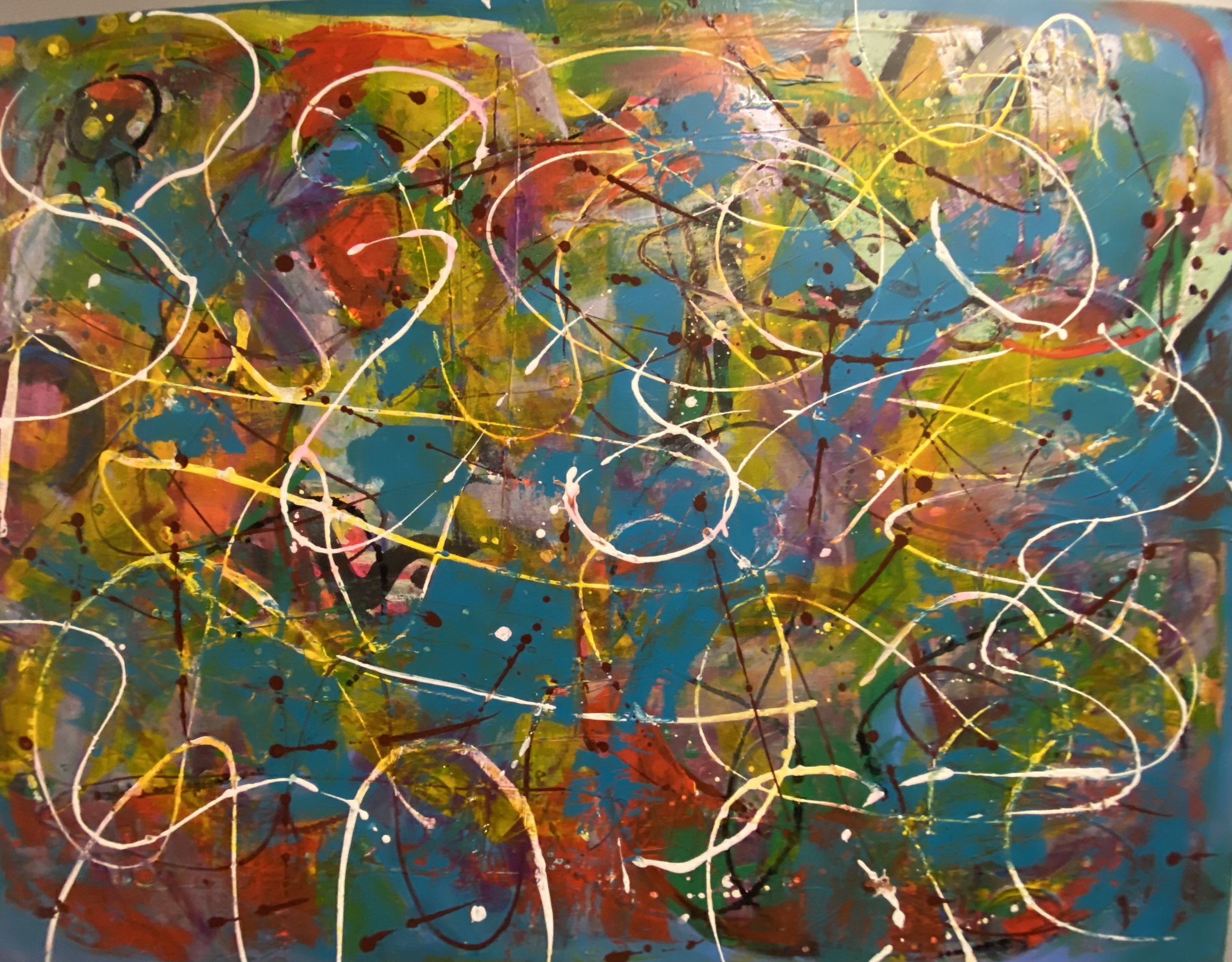How to Protect and Cultivate Your Creativity
Artwork by Rudy Galindo.
Protect and feed your creativity.
Your creativity is arguably your most important asset, when it comes to your personal and professional development.
The pace of change in today's world continues to accelerate. Technology is advancing at an exponential rate. New applications in artificial intelligence, e-commerce, social networking, and other categories spring up like mushrooms.
Furthermore, rapid change creates economic opportunities as well as challenges for individuals. Maintaining an entrepreneurial mindset (with soft skills to match) is a crucial component to success in today’s world.
We need to stay open to new opportunities and think outside of the box in terms of where we can add value, how we can upgrade our skills, and how to build interpersonal relationships that will open doors.
In short, individuals (and businesses) need to be able to adapt and innovate in order to stay competitive.
Hence, creativity is essential for coming up with new ideas, products, and services that can produce sustained value to new and existing customers.
What is creativity?
Creativity is the ability to generate new and innovative ideas, thoughts, or solutions to problems. It is a complex process that involves the use of imagination, insight, and originality to produce something new or valuable. Creativity can be expressed in a variety of ways, such as through art, music, writing, science, or business.
Creativity is an important part of the human experience and has been associated with various positive outcomes, such as increased mental well-being, improved problem-solving skills, and increased success in various fields.
There are many factors that can contribute to creativity, including genetics, personal experiences, education, and environment. Some people are naturally more creative than others, but creativity can also be developed and nurtured through various activities and practices.
Robert Greene is a New York Times best selling author. Here, Robert talks about the common characteristics shared among creative people.
Stress and anxiety is a creativity killer
How can you protect and nurture our creativity?
In short, stress less. Your mind performs at its creative best when it is uninhibited from the myriad of thoughts that enter into our field of consciousness.
If your inner voice is consumed with processing the external stimuli that come at you on the daily basis, then you will struggle to access the deeper parts of the mind that enable creativity.
While a certain level of stress can sometimes be beneficial for motivating and focusing the mind, excessive stress can have a detrimental impact on creative thinking and problem-solving abilities.
Furthermore, excessive stress can lead to anxiety. While stress is a normal and natural response to challenges or threats, anxiety is a persistent and excessive worry or fear that is not proportional to the situation. When stress becomes chronic or prolonged, it can lead to the development of anxiety or other mental health problems.
An anxious mind will keep you in the state of fight or flight, and one that is less receptive to creativity.
There are several ways in which stress can negatively affect creativity. First, stress can impair cognitive functioning, including the ability to think flexibly and come up with new ideas. When the mind is preoccupied with stress, it is less able to engage in the kind of open-ended, exploratory thinking that is often necessary for creative problem-solving. This is because stress activates the body's "fight or flight" response, which is designed to help us respond to immediate threats or dangers. This response is necessary for survival, but it can also inhibit more complex mental processes such as creative thinking.
Second, stress can also lead to negative emotions such as anxiety and depression, which can further inhibit creative thinking. Negative emotions can narrow our focus and make it more difficult to see different perspectives or consider novel solutions to problems. In addition, negative emotions can drain mental energy and make it more difficult to engage in the mental effort that is often required for creative problem-solving.
Finally, stress can also have physical effects on the body that can impact creativity. Chronic stress has been linked to a range of physical health problems, including fatigue, sleep disturbance, and impaired immune function. These physical symptoms can further drain mental energy and make it harder to engage in creative thinking. In addition, stress can also disrupt the balance of chemicals in the brain, such as serotonin and dopamine, which play a role in mood and cognitive function.
In conclusion, stress less and cultivate a deeper understanding of creativity as a unique aspect of the human experience. Nurture your creative capacities via your stress management plan including self-care, mindfulness, movement and meditation. Detach yourself from negative emotions that inhibit your creativity.
